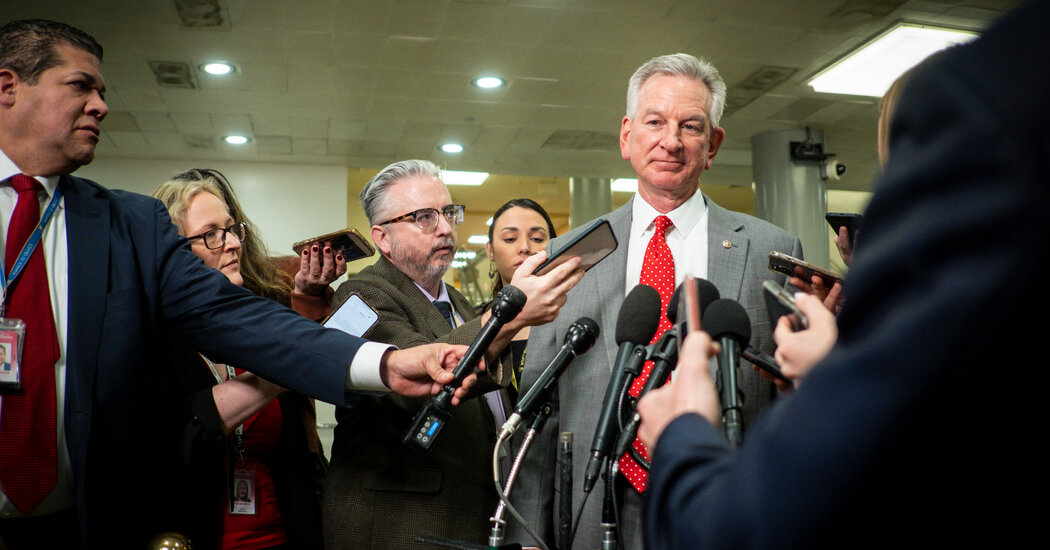
 News
News 
Senate Democrats have challenged Mr. Tuberville at least a half-dozen times on the Senate floor to stop holding military promotions hostage, and the Armed Services Committee has continued to hold confirmation hearings for high-ranking nominees, in the hopes that the Alabama senator might relent. Gen. Charles Q. Brown, the Air Force chief of staff and President Biden’s pick to succeed Mr. Milley as the chairman of the Joint Chiefs, and Gen. Randy A. George, the Army’s vice chief of staff whom Mr. Biden nominated to take over as Army chief, are both scheduled for hearings this week.
But their efforts have thus far failed to dissuade Mr. Tuberville, who has dismissed his critics by arguing that Senate leaders have options to resolve the impasse. He has suggested that Congress pass Republican-sponsored legislation to reverse the Pentagon’s abortion access policy — or a competing Democratic bill to give the policy the force of law. He has dared Senate leaders to circumvent his blockade by voting on the promotions individually, arguing that he would be ready to approve some promotions if forced to take a vote.
But Senate aides say none of his suggested offramps are workable. Senate leaders believe it would be nearly impossible to collect enough votes, between the Democratic-led Senate and the Republican-led House, to send legislation either affirming or overturning the Pentagon’s policy to the president’s desk. And they are queasy about trying to get around Mr. Tuberville’s protest procedurally because of the amount of time it would take to plow through the Senate’s arcane hurdles for all the nominations he is holding up.
Senate leaders are also resisting pressure from rank-and-file lawmakers to make an exception for the Joint Chiefs, fearing that doing so would legitimize Mr. Tuberville’s protest — and encourage others harboring grievances with Pentagon policies to emulate his approach.
In the meantime, Mr. Tuberville has steadily rejected the compromises that Senate leaders have offered him. He refused to relent in exchange for holding a closed-door vote in the Armed Services Committee last month against a bill undoing the Pentagon’s policy. And he has publicly eschewed the idea of settling his dispute by voting on the Pentagon’s policy as an amendment to the annual defense policy bill, which is expected to begin moving through the House next week.
Senate leaders hope to change Mr. Tuberville’s mind over the next few weeks.
Challenges to the Pentagon’s abortion access policy are expected to figure in the House debate on the defense authorization bill. Republicans have already filed two proposals — one of them with more than 50 co-sponsors — to bar the Defense Department from using federal funds to reimburse any abortion-related expenses, which would effectively undo the Pentagon’s policy. A group of House Democrats has filed a competing proposal seeking to make the Pentagon’s reimbursement policy a requirement of federal law.
Even if either of those changes were made to the House bill, it would still face significant hurdles in the Senate — particularly since aides in both parties fear that if the must-pass defense bill is seen as a Trojan horse for abortion measures, lawmakers will vote against it in droves. But they hope that such a public referendum on the Pentagon’s policy would back Mr. Tuberville into a corner, creating public pressure on him to give up his quest.
24World Media does not take any responsibility of the information you see on this page. The content this page contains is from independent third-party content provider. If you have any concerns regarding the content, please free to write us here: contact@24worldmedia.com